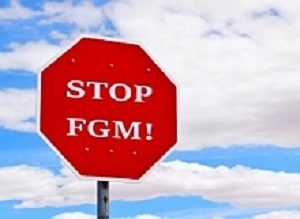About 700 traditional ‘cutters’ in Sierra Leone have pledged to abandon and advocate against Female Genital Mutilation (FGM) which is still not illegal in the country. According to the UN, Sierra Leone has one of the highest rates of FGM in Africa and is one of the few African countries where the practice is not illegal.
The Reuters Foundation reports that FGM in Sierra Leone in women aged between 15 and 49 is 89.6%, with the highest prevalence of 96.3% in the Northern region. The young girls and women within this age range underwent the procedure between the ages of 10 and 14.
According to a This is Africa report, the founder of the anti-FGM group, Amazonian Initiative Movement, Rugiatu Turay, said “we want to make sure that the government knows that the bodies of women are not a battle ground. UN Women has noted that 60 leaders of female initiation rites have pledged to abandon and advocate against FGM and are ‘transforming community attitudes and girls' lives.”
The report further details that almost all instances of FGM are performed by traditional cutters, locally referred to 'soweis' and is closely linked with secret societies that practice it a part of an initiation ritual.
In 2019 Sierra Leone issued a ban on initiations, but, the report says, authorities in Sierra Leone and neighbouring Liberia are unwilling to introduce legislature against FGM because of the power of the secret societies also known as “bondo”. The report says despite the numerous negative implications – including include anaemia, the formation of cysts and abscesses, keloid scar formation, damage to the urethra resulting in urinary incontinence, dyspareunia (painful sexual intercourse), sexual dysfunction, hypersensitivity of the genital area and increased risk of HIV – the government therefore only banned the practice in response to political violence related to men's and women secret societies.
The ban was however a step in the right direction. Turay is quoted in the report as saying that, "We want to make sure that the government knows that the bodies of women are not battle grounds."
The activist also spoke to the World Health Organisation about the importance of involving the soweis in the campaign to end FGM saying: "Educating people is empowering them. It is only through their minds that you can change the attitude of people."
"We have been able to get about 700 practitioners from 111 villages to drop the practice," Turay is quoted in the report as saying.
[link url="https://thisisafrica.me/politics-and-society/sierra-leones-steps-to-end-female-genital-mutilation/"]Full This is Africa report[/link]

